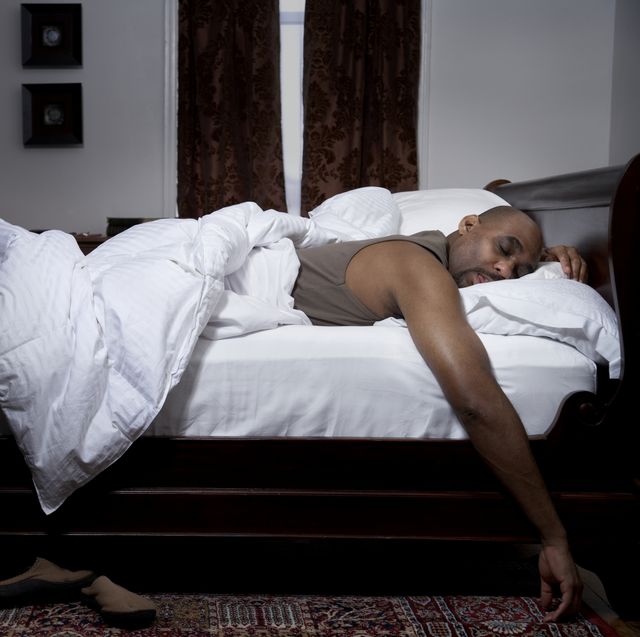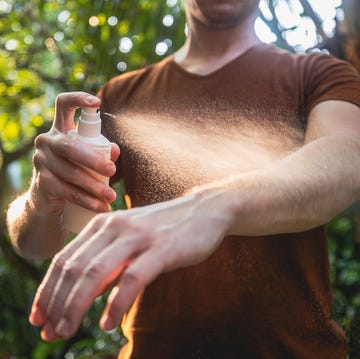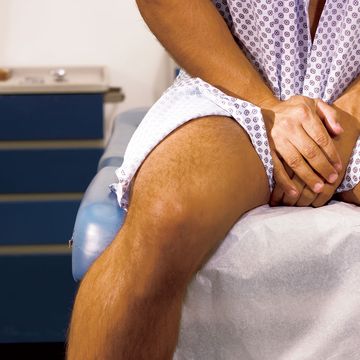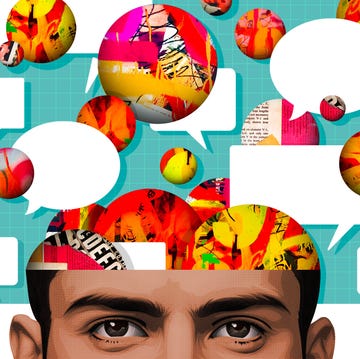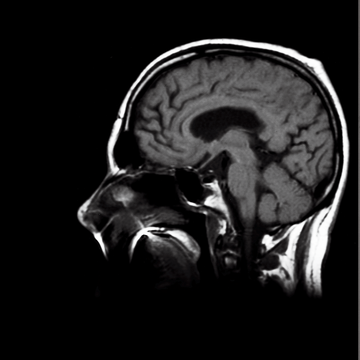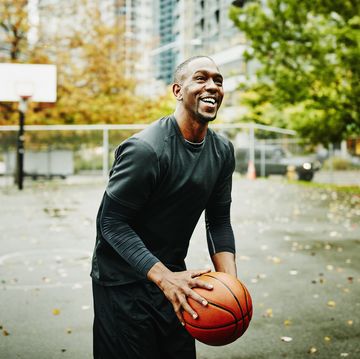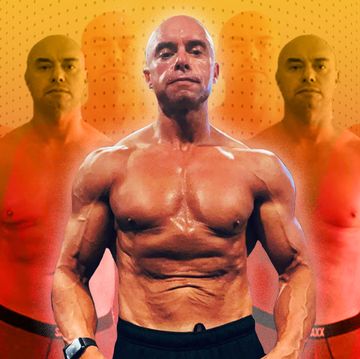The COVID-19 pandemic has changed our lives in many ways, and this includes screwing up our precious sleep. Thanks to the quarantine, our work-from-home schedules, remote learning, and stress from living through a pandemic, many of us are experiencing messed-up sleep schedules.
“There’s been a spike in cases of disrupted sleep patterns due to these unprecedented circumstances associated with the pandemic,” says Wendell Bobb, M.D., assistant professor of neurology and sleep medicine at George Washington University School of Medicine.
According to the CDC, one third of adults are getting less than the recommended seven hours of shuteye. And not getting adequate rest is linked with numerous chronic diseases and conditions, including diabetes, heart disease, stroke, obesity, and depression, all which are threatening the nation’s health. Lack of sleep for any reason—whether we're lying in bed stressing about the pandemic, browsing social media, or binge watching Netflix—also causes memory loss, impaired immunity, decreased libido, and erectile dysfunction.
“Seven to eight hours of sleep for an adult are recommended for optimal physical, mental, and emotional well-being, and shortchanging ourselves can lead to harmful short-term and long-term consequences in virtually all bodily systems,” says Dr. Bobb.
When to see a doctor about your messed-up sleep
“If someone has difficulty sleeping for more than three weeks, they should speak with a sleep specialist,” advises Dr. Bobb. “When it comes to insomnia, there is often a precipitating event such as the stress of the pandemic, sleep-wake schedule changes, medications, or depression that initially causes the insomnia, but the insomnia can persist long after that inciting event. Therefore, the earlier the sleep disturbance is diagnosed and treated, the better.”
If your sleep issues are not that severe, but are still disrupting your life, use these strategies to help you get your slumber back on track.
Best ways to get your sleep back on track
Have a schedule
Wake up and go to bed at the same time every day, and yes, that includes weekends. This will help to regulate your circadian rhythm (internally driven cycles that rise and fall during the 24-hour day and help you fall asleep at night and wake you up in the morning) and the release of melatonin (a hormone produced by the pineal gland that is involved in regulating the sleeping and waking cycles) at the same time daily in order to have a predictable sleep schedule.
Turn off the lights—or at least turn them down
One to two hours before bedtime, if possible, turn the lights down and put your electronic devices away. That means your phone, laptop, tablet, and it also means saying goodnight to Hulu or whatever you have playing on TV. “The blue wavelength light emitted by most digital screens tricks the circadian clock into thinking that it’s morning time so that melatonin release is virtually halted, delaying the time that you feel sleepy," says Dr. Bobb. He recommends using a screen light-filtering software as the F.lux app if you’re having a hard time disengaging from your devices.
Get moving
Exercising daily increases serotonin, which help to regulate the circadian clock and decrease psychological stress. Exercise can also elevate your body temperature. That's good, because a post-exercise drop in your temperature in the evening can help facilitate adequate sleep. Just avoid exercising too late in the evening, or you may be too jazzed to fall asleep.
Ditch the coffee
You don't have to lose it altogether, but cut out caffeine or other stimulants at least six hours before bedtime. “Caffeine blocks the effects of adenosine, which makes us sleepy, causing us to perk up with that cup of Joe. But if you’re having difficulty falling asleep, you actually want to experience the sleep-promoting effects of adenosine, so caffeine should be avoided at least six hours before bed,” says Dr. Bobb.
Nix the nightcap
Put down that bottle of beer four hours before hitting the sack. “During the first couple hours of alcohol’s sedative properties, it suppresses the excitatory nerve cells in the brain. And since, by nature, the excitatory brain cells are, well, excitatory, they are not happy when something comes in and cramps their style,” explains Dr. Bobb. “They get riled up to oppose the inhibitory effects of the alcohol. But as the alcohol is metabolized within a couple hours, these cells remain in that unopposed hyperactive state for some time which contributes to the rebound wakefulness, inability to fall back asleep, or disrupted sleep.”
Scrap the nap
You’ve probably heard naps are healthy, and they are, if you don’t have sleep issues. But if you do, reconsider your afternoon siesta. “Consolidated sleep is much healthier than fragmented sleep. The longer you can stay awake during the day, the sleepier you should become at night as the sleep drive builds,” says Dr. Bobb. “So avoiding naps during the day if you’re having difficulty falling asleep is best.”
Develop a routine
Our brains like structure, so creating a nightly routine can help prepare it for sleep. This can include listening to relaxing music, reading, praying, meditating (excellent for minimizing anxiety and stress) or writing in a journal, where you can use to jot down your worries, which can be a way of gently releasing them from your mind.
